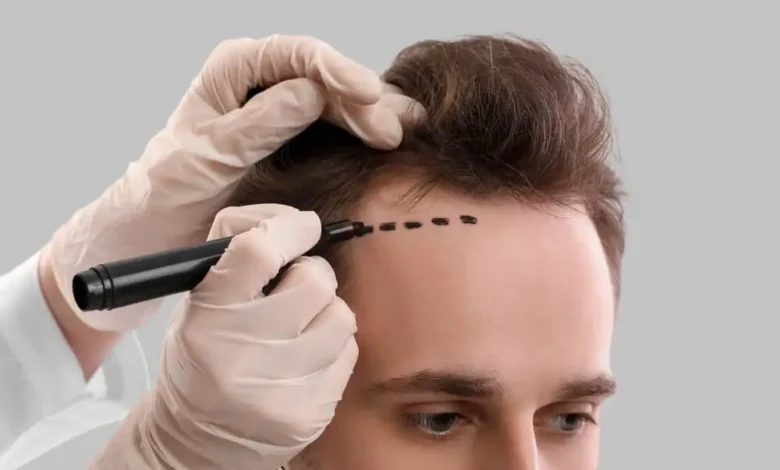The Confidence Gap: Why Personal Appearance Directly Impacts Business Performance, And What Hair Transplants Have to Do With It

Confidence is one of the most powerful assets in business, yet it remains the least measurable. It won’t appear in a P&L, it doesn’t show up on a KPI dashboard, and there’s no neat metric to quantify it. But despite being invisible on paper, confidence shapes real-world outcomes in ways most entrepreneurs underestimate.
It quietly influences everything, the pitches you deliver boldly, the ideas you share without hesitation, the opportunities you pursue and the prices you confidently charge. It even affects the influence you hold in the rooms that matter most.
Confidence might be intangible, but its impact is unmistakably concrete. For most people, the option of accessing hair transplant finance has made it easier to consider improving their hairline as an option.
What’s often overlooked, especially amongst entrepreneurs and professionals, is how closely personal confidence is tied to personal appearance. Not in a superficial way — but in a psychological, behavioural, and even performance-driven way.
And this reality is exactly why more business owners, founders, executives, and high-performers are turning to hair restoration as part of their personal and professional optimisation.
Your Appearance Is the First KPI Anyone Evaluates, Long Before You Speak
In business, the first impression happens before the first word. People make rapid judgments based on presence: credibility, competence, authority, energy, strength — all assessed visually in seconds. And as the competition for attention grows fiercer, especially online, your face and presence often are the brand.
Now imagine someone experiencing visible hair thinning or a receding hairline. Even if subtle, it can trigger:
- self-consciousness on camera
- reluctance to post content
- Insecurity in client meetings
- hesitation during high-stakes conversations
- discomfort seeing their own reflection on Zoom
These micro-hesitations lead to macro outcomes.
When you don’t feel like your best self, you don’t show up as your best self. That internal conflict is what creates the confidence gap, the distance between who you are and how confidently you perform.
Why Entrepreneurs Feel the Confidence Gap the Most
Employees can often operate behind job titles, teams and departments; entrepreneurs don’t have that luxury. Founders, consultants, coaches, agency owners and experts are the face of their business.
And as more commerce and communication shift online, visibility isn’t optional anymore; it’s a requirement.
Potential customers judge you before they judge your offer. Your image becomes part of your credibility stack, and your presence directly influences trust, authority and decision-making.
This is why a drop in confidence shows up in business almost instantly. You record fewer videos, avoid taking new headshots, delay podcast appearances and shrink during sales calls. You publish less content, which slows audience growth, and you take fewer risks, pitch fewer partnerships, and ultimately close fewer deals.
The moment you hesitate to show up, your business starts to slow down. A founder operating at 80% confidence is no different from a salesperson turning up with 20% less conviction; performance drops across the board.
Hair Loss Doesn’t Stop Capability, But It Can Change Self-Perception
The irony is that hair loss never removes someone’s intelligence, skill or value — those remain intact. What it can change, however, is how a person sees themselves, and that shift in self-perception directly influences how boldly they operate in the world. How you feel about your appearance affects how confidently you show up, make decisions and take opportunities.
Entrepreneurs feel this psychological impact more sharply because their visibility is constant. They are always in front of people, always selling themselves, their ideas and their vision. Their authority is judged quickly, trust is influenced by presence, and their personal brand is directly connected to financial outcomes. When appearance disrupts their confidence, performance often follows.
So when your appearance changes, especially in a way you can’t control, your identity feels misaligned with your ambition.
The Rise of the “Executive Hair Transplant” — Quiet, Strategic, Purposeful
Ten years ago, hair transplants in the UK, especially, were something people spoke about quietly, almost with hesitation. Today, they’ve become a subtle but common part of high-performance optimisation, just like hiring a personal trainer, working with an executive coach, implementing a disciplined morning routine or upgrading your wardrobe for investor meetings. They sit comfortably within the same category of strategic self-improvement.
High-achievers choose this route for one core reason: they want their appearance to match the level they’re operating at. They’re not aiming to look younger, only more aligned. They’re not chasing perfection, just confidence, the kind of confidence that helps them show up with clarity, authority and presence.
A Transplant Isn’t Vanity, It’s Psychological Alignment
What people truly want isn’t hair itself, it’s the feeling hair gives them. It’s the sense of authority, sharpness, youthfulness, energy, self-belief and the confidence to show up without hesitation. Hair is simply the mechanism that restores an internal state that many professionals rely on to perform at their best.
Successful business leaders aren’t pursuing these changes out of vanity. They’re optimising themselves for the competitive advantage that confidence provides. When they feel aligned, capable and energised, their performance, presence and decision-making all rise to a higher level.
Confidence Is a Revenue Driver
Confidence is one of the most powerful revenue drivers in business, even though it’s rarely discussed openly. It affects everything, how you price, how firmly you negotiate, how you pitch, handle objections, present to teams, appear in front of the press, tackle opportunities and deal with pressure. Most importantly, confidence determines your ability to take consistent, decisive action.
When someone avoids visibility because they feel insecure about their appearance, the business feels it immediately.
Lead flow slows, brand equity weakens, and momentum starts to stall. But a founder who feels great about themselves operates on a completely different level — they become magnetic, persuasive, energised and visible. Confidence isn’t a soft skill; it shapes outcomes.
What Hair Transplants Teach Us About Business Strategy
A professionally performed, surgeon-led hair transplant carries lessons that mirror smart entrepreneurship:
1. Early action saves resources
Treat recession early → protect more hair.
Fix business issues early → save time and money.
2. Expertise beats DIY
Cheap clinics equal poor results.
Cheap strategies equal poor business outcomes.
3. Consistency wins
Great results require aftercare.
Great businesses require ongoing habits.
4. The biggest growth happens quietly at first
Hair grows slowly before it becomes visible.
Businesses also succeed gradually before success is obvious.
5. Long-term thinking always outperforms short-term shortcuts
Sustainable, natural solutions → better outcomes.
Sustainable business strategy → predictable revenue.
The parallels are powerful, and entrepreneurs recognise them.
Why More Professionals Are Choosing Surgeon-Led Clinics
The move toward safe, UK-based, medically-led treatments is driven by three things:
- Naturalness:
Professionals want subtle, believable results — not big, dense, unrealistic hairlines. - Trust:
CQC-registered clinics with real surgeons provide predictable outcomes. - Discretion:
Modern FUE offers fast downtime, minimal scarring, and results that don’t “look like a transplant.”
The Bottom Line: Your Confidence Sets the Pace of Your Business
The confidence gap is real. When people stop feeling like their best selves, their performance begins to dip, often subtly at first, but subtle dips in business can lead to serious consequences.
A hair transplant won’t alter your intelligence, skills or capability, but it can restore the confidence that amplifies all three. It gives people back the internal strength they need to operate at their full potential.
This is why more entrepreneurs, consultants, executives and leaders are choosing the procedure, not to look dramatically different, but to feel aligned, energised and ready to perform at the level their ambitions demand. In business, confidence isn’t a luxury or an optional trait; it’s a competitive advantage that directly shapes outcomes.



